Working on Swiftwing

Swiftwing
Wed 7 May 2014 13:06
|
When we arrived back to Swiftwing in January we had a list of jobs that
needed to be done before we could head for Florida. The weather was so
cold in January that when I washing down the walls with hot water it
instantly turned to ice and it seemed like a hopeless task to get anything
done. However, Duggie disappeared into the aft cabin, I thought to hibernate,
but next moment was ordering enough teak to fit out an ocean liner.
He managed to track down a company in Pennsylvania that supplied sustainable
teak and had supplied the mountain of teak for the recent rebuild of the Cutty
Sark.
Renovation and fitting out of the aft cabin on board Swiftwing.
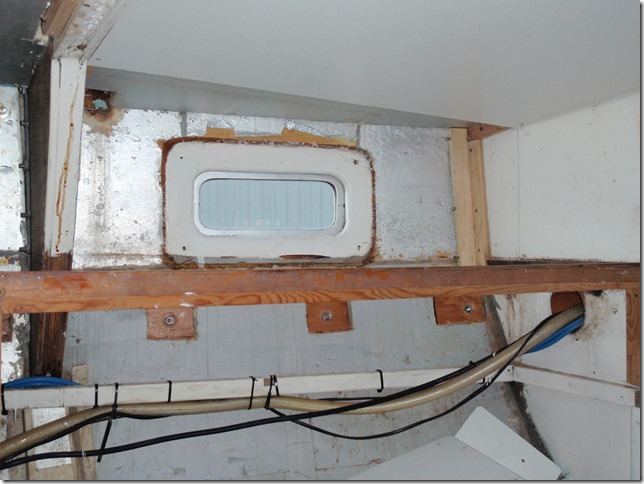 The before photo. Stripped of all the cheap nasty plywood, this is what
Duggie started with.
So for years we have been looking at insulation on the walls and ceiling
and an ugly painted bulkhead. Despite having to remove our bedding every
day to allow work to go ahead, it has been worth all the disruption, to
have what is now a very luxurious aft cabin.
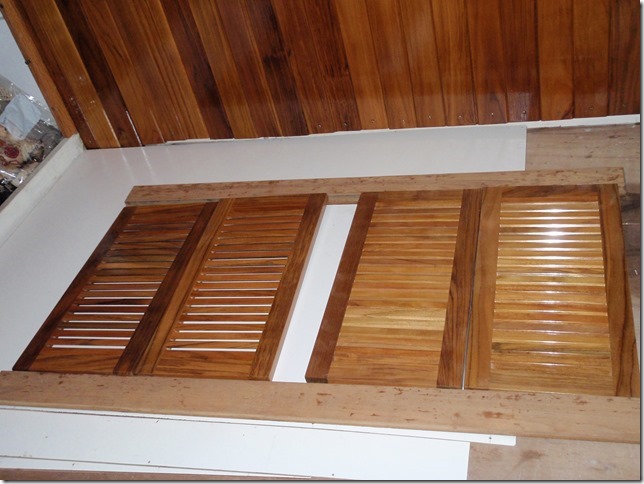 Teak louvre doors for the cupboard at the end of the bed.
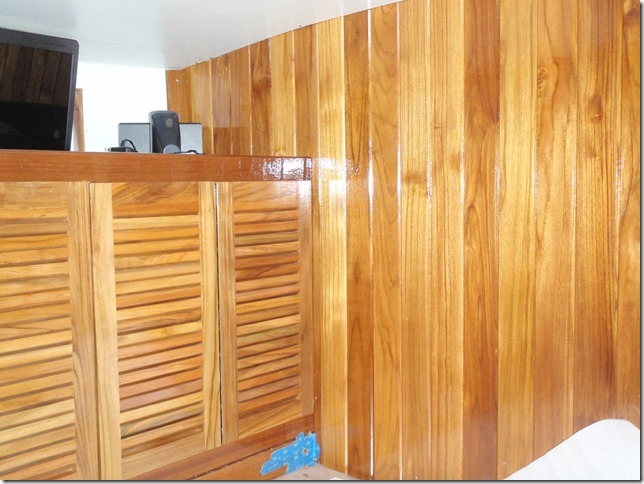 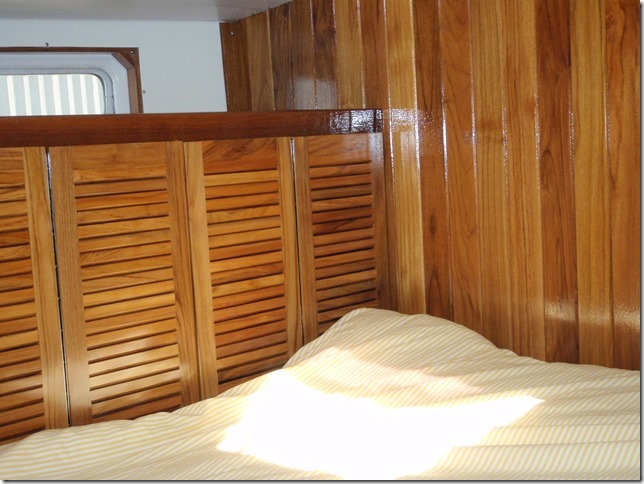 This is the ‘after’ photo of photo No.1 above. Tongue and grove teak
on the aft bulk head and finished cupboard. Polished stainless steel piano
hinges attached to the doors, which through clever design, concertina out
to give as much access room as possible. Frame for the doors made with
some of the teak decking we rescued and the deck-head lined with sheets melamine
that have been travelling with us, unfitted, for seven years.
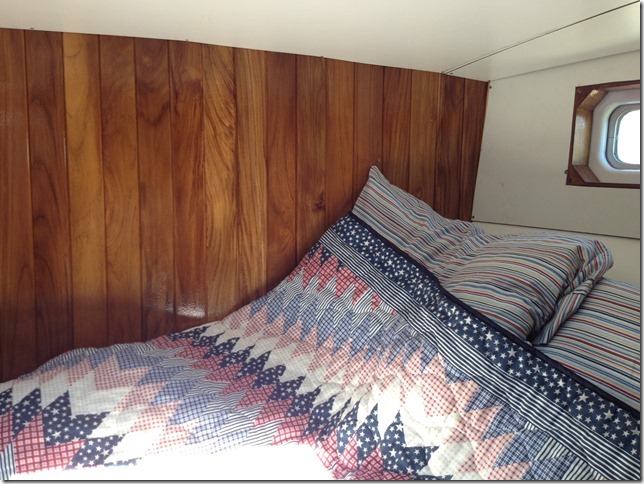 Bed looks inviting but too much work to do.
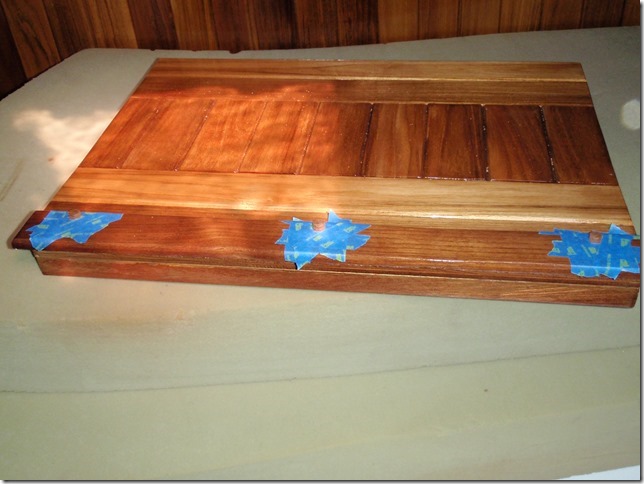 New doors to fit below the chart table. The blue tape is to
avoid scratching the wood when Duggie saws off the protruding dowels with a
Japanese dowel saw. The dowels are to hide the screws; piano
hinges used to fix the doors onto cupboard. Made from rescued doors from the
motor boat which were sawn in half and dressed up with teak off-cuts
from the new tongue and groove. The doors are very solid as a bruise, shows when
I dropped the door on my foot.
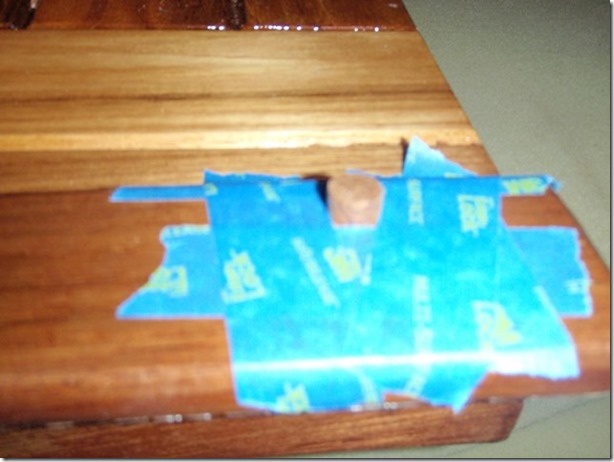 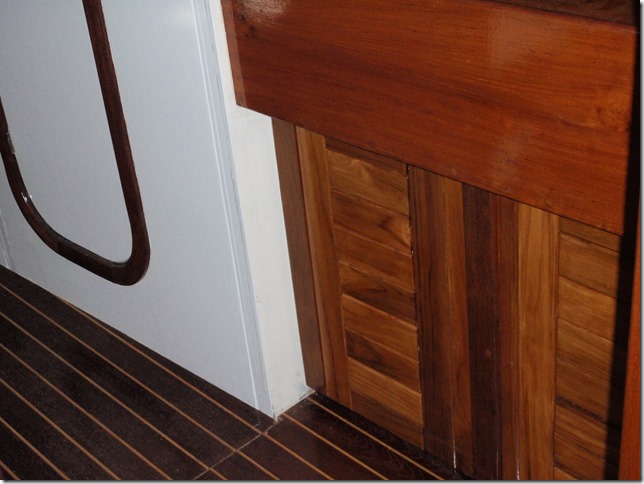 Dowel end ready to be cut flush and sanded to match the surrounding
woodwork.
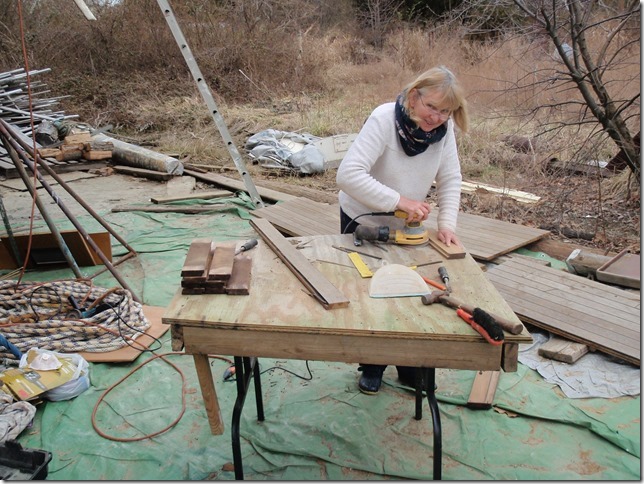 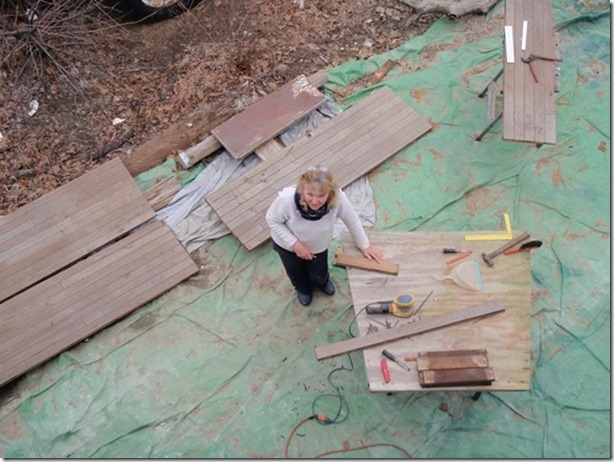 Sanding the three-quarter inch thick teak that came off the deck of a power
boat that is to be broken up, as it has a hull which leaks like a sieve and is
no longer viable. Duggie cut it up into the large sections you can see
behind me in the photo, six feet by two feet. The teak deck had been laid
onto tar paper (roofing felt without the rough top finish) and had
been screwed down onto plywood backing. Each plank had to be separated from the
ply and the ends of the brass screws were cut off with an angle grinder.
The rubber caulking was then removed with a Stanley knife, routed and then it
all had to be sanded. The quality of the recycled teak is second to none and the
varnished finishes are beautiful.
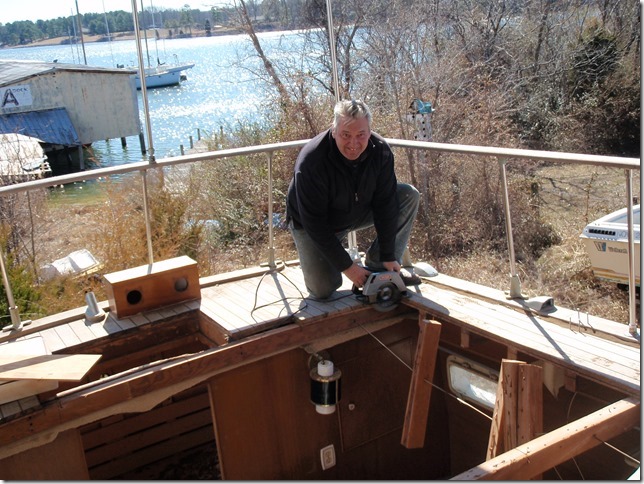 Not much left of the motor boat deck! Duggie left a few deck beams in place
so that the motor yacht’s hull wouldn’t implode with him on it!
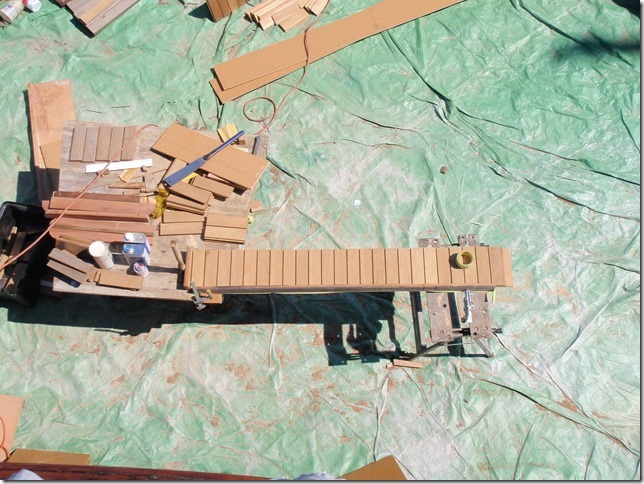 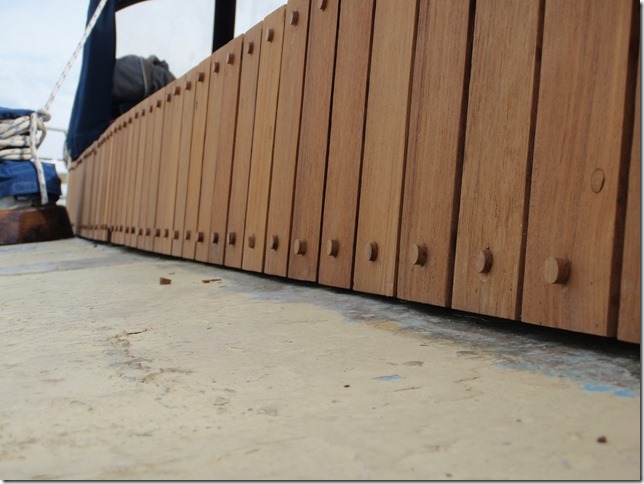 We have named this piece of wood work the picket fence, but it is the teak
decking from the motor boat cut into nine inch lengths and and goes to make up
the uprights in the new cockpit. There are eight, six foot lengths, of picket
fence now surrounding and inside the cockpit. The planks are individually
screwed and dowelled as well as glued with west epoxy. One of todays jobs is to
sand the dowels and then apply more teak oil.
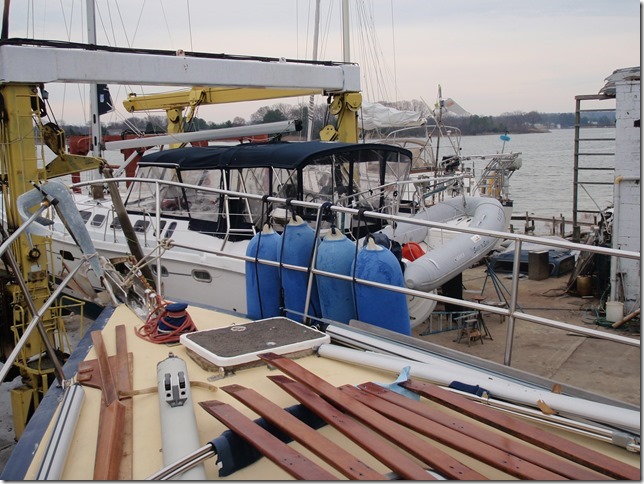 Varnishing on the deck. This is the toe rail which won’t go back on before
next year. The sun plays havoc with varnish. I have canvas at home to make up
sun covers as it is a huge amount of work to sand and varnish the woodwork every
couple of years. About ten layers of varnish on this lot.
 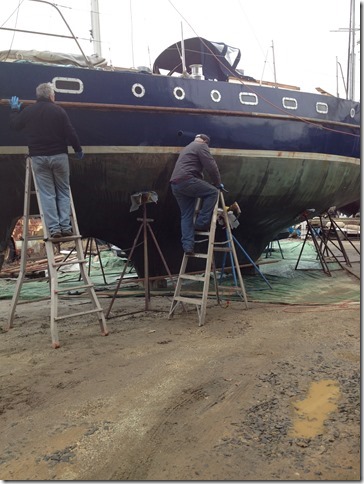 Corridor to forepeak painted and brown stain removed from teak wood
surrounds and varnished . Corridor to the aft cabin also repainted with the six
doors. Duggie and Cliff replacing the rubbing strake with new iroko
wood.
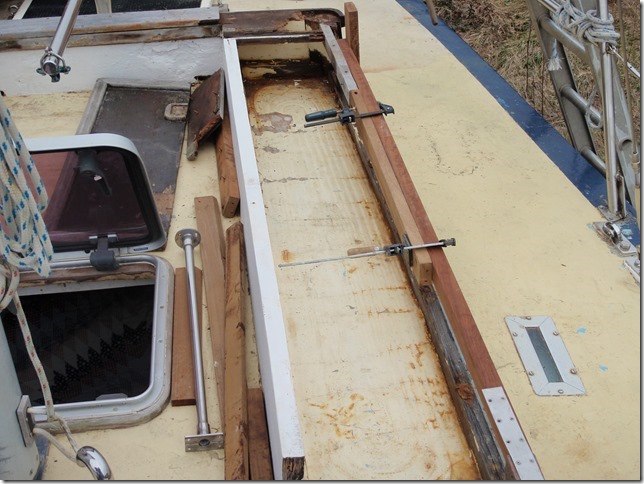 The deck lockers and surrounding ply were rotten in places and the
through deck fixings were galvanised bolts that had rusted badly and were
leaving rust stains on the deck. The fixings were replaced with 316
grade stainless steel nuts and bolts, new framing made from iroko
and some beautiful unmarked pitch pine that Duggie rescued from the remains of
the keel of a 1950’s wooden Chris Craft motor yacht, and the whole lot
bedded down in sikaflex rubber compound. Teak picket fencing then attached
to the framing using two inch stainless steel screws. We are going to let most
of the teak weather and this will do away with the bi-annual sanding and
painting ritual that we have carried on for the past thirteen years. Yes, it is
thirteen years since we bought Swiftwing.
That’s all for now folks as there is much work to be done before we fly
home again in two weeks.
|